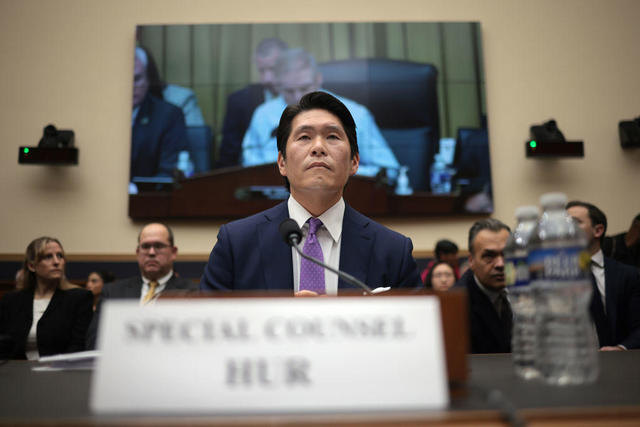According to an initial assessment issued by the House Committee on the Judiciary and the Select Subcommittee on the Weaponization of the Federal Government, a federal agency created to safeguard vital infrastructure and cybersecurity attempted to hide its domestic censoring practices.
The Cybersecurity and Infrastructure Security Agency’s (CISA) relationship with major technology firms and publicly financed third parties was revealed in a report which was made public on Monday. A little-known division of the Department of Homeland Security (DHS) is CISA.
Unknown, secret papers have come to light that show CISA went beyond its authority in order to monitor discourse on social media and conspired with Big Tech firms like Twitter and government-funded third parties to “censor by proxy.” The report’s messages reveal that CISA later attempted to hide its “plainly unconstitutional activities” from the general public.
The report accuses CISA of attempting to evade First Amendment protections by working with government-funded third parties to conspire with Big Tech firms to censor particular perspectives.
“CISA is not a law enforcement agency and is not authorized to act as an intelligence agency. But, in practice, that is how CISA has behaved, arrogating to itself the authority to conduct surveillance of Americans on social media,” the report states.
“CISA expanded its unconstitutional practice by developing an elaborate social media censorship apparatus spanning multiple organizations in order to facilitate the censorship of Americans’ political speech both directly and by proxy.”
The report brings attention to a number of especially troubling activities, including CISA’s consideration of creating a “rapid response” anti-misinformation team, relocation of censoring operations to a third-party organization in order to prevent unfavorable views, and agency plan to use the non-profit as a spokesperson in order to avoid charges of official propaganda.
What Is the CISA?
CISA sits within the Department of Homeland Security with the statutory mission to lead “cybersecurity and critical infrastructure security programs, operations, and associated policy.”
The agency was created to protect the electrical grid and other “critical infrastructure” sectors from cybersecurity threats. However, after the 2016 elections, former DHS secretary Jeh Johnson designated “election infrastructure” as a “critical infrastructure subsector.”
Furthermore, CISA director Jen Easterly argued in November 2021 that the term critical infrastructure, along with the agency’s remit, also included “cognitive infrastructure.”
“One could argue we’re in the business of critical infrastructure, and the most critical infrastructure is our cognitive infrastructure, so building that resilience to misinformation and disinformation, I think, is incredibly important,” Easterly said.
A committee called MDM was established by CISA to focus on false, misleading, and malicious information. Factual information that needs “context” to prevent it from being twisted into what CISA deemed a “harmful” narrative referred to as malinformation. This includes Twitter’s decision to suppress the New York Post’s report on Hunter Biden’s laptop.
CISA’s cybersecurity advisory board established a “Protecting Critical Infrastructure from Misinformation and Disinformation” subcommittee known as the “MDM Subcommittee.”
Misinformation specialists from the government, Big Tech, and academia were brought together in the MDM Subcommittee. This featured Suzanne Spaulding, a former assistant general counsel and legal advisor for the Central Intelligence Agency, Kate Starbird, co-founder of the University of Washington’s Center for an Informed Public, and Vijaya Gadde, former chief legal officer of Twitter.
Rapid Response Misinformation Team
The report highlighted one instance as a “particularly notable departure from [CISA’s] legal authority,” which occurred at an MDM meeting on June 14, 2022.
CISA proposed creating an anti-MDM “rapid response team” that would physically deploy around the United States, according to messages and meeting minutes. Attendees approved of the concept.
Geoff Hale, the director of CISA’s Election Security Initiative, commented that “this is a fascinating idea that takes CISA’s existing operational responsibilities to consider MDM as part of its core mission set.”
Twitter’s former head of legal, Vijaya Gadde, noted “that the idea of a rapid response team must include the ability to engage whether or not a cyber component is present.”
“Dr. Starbird agreed with Ms. Gadde’s point that threats to critical infrastructure are not limited to cyber threats,” meeting notes stated.
“CISA has transformed into a domestic intelligence and speech-police agency, far exceeding its statutory authority,” the report states.
After Joe Biden took office, CISA admitted in a 2022 pamphlet titled, “Planning and Incident Response Guide for Election Officials,” that it was also targeting MDM originating from domestic sources.
The report describes CISA’s involvement in policing MDM as “a direct and serious threat to First Amendment principles.”
According to the report, CISA’s MDM team at its height consisted of 15 devoted part- and full-time employees who concentrated on misinformation campaigns aimed at elections and crucial infrastructure.
Censorship by Proxy, Switchboarding
The research reveals instances of CISA outsourcing its operations to outside parties to facilitate so-called “misinformation reports” from all around the nation and send them to social media businesses during the 2020 and 2022 elections, shedding insight on the enormous censorship apparatus.
“CISA has transformed into a domestic intelligence and speech-police agency, far exceeding its statutory authority,” the report states.
The Center for Internet Security (CIS), a nonprofit organization, is funded by CISA. The operation of the Multi-State Information Sharing and Analysis Center (MS-ISAC) and Elections Infrastructure Information Sharing and Analysis Center (EI-ISAC) will be funded with $27 million for the fiscal year 2024.
Election officials from all throughout the nation allegedly sent erroneous or deceptive internet information regarding the 2020 elections to social media giants by using EI-ISAC as a “single conduit”
Brian Scully, the manager of its MDM team, described CISA’s involvement in the 2020 election season as “switchboarding.” It took a lot of resources for CISA personnel to submit allegations of suspected disinformation to social media sites for blocking.
Scully stated during his deposition that EI-ISAC was hired to handle this procedure for the 2022 midterm elections as part of current litigation in federal court.
An uncut video of a county official was shared on Twitter in August 2022. A Loudoun County, Virginia, government official reported the post because it was “part of a wider attempt to undermine the word of” that person.
“The Loudon County official’s remark that the account she flagged ‘is connected to Parents Against Critical Race Theory’ reveals that her ‘misinformation report’ was nothing more than a politically motivated censorship attempt,” the report states.
Messages show CISA officials implicitly and explicitly acknowledged on multiple occasions that the agency was not authorized to conduct the kind of surveillance and censorship.
Messages, meeting notes, and comments on documents obtained by the committees show Starbird, Twitter’s Gadde, and the CIA’s Spaulding discussing “ the limitation of CISA’s work regarding monitoring” of Americans’ speech.
On March 15, 2022, Starbird “posed how CISA could work with or otherwise support external groups, such as researchers and non-profits, to support MDM response and how this work would be funded in the future.”
Gadde, who was then Twitter’s chief legal officer, “highlighted the many sensitivities, beyond legal ones, in terms of the relationship between social media companies and government concerning media monitoring and the perception this plays globally.” She also noted the need for this government-social media partnership not to result in “any form of surveillance.”
Starbird responded that “this work should come from outside of government due to the sensitivities in this relationship.
“Rather than abandon the consideration of surveilling Americans, Starbird and Gadde attempted to find ways to circumvent the First Amendment’s strictures by outsourcing the ‘monitoring’ activity from the government to private entities,” the report states.
In the same meeting, Spaulding warned that “the government cannot ask an outside party to do something the Intelligence Community cannot do.” But further notes left by Spaulding on MDM’s June recommendation reveal that the MDM members were still considering relying “upon third parties” months later.
Covering Tracks
Before it was dismantled in May 2022, and following harsh criticism of the Disinformation Governance Board under the Biden administration in April 2022, CISA personnel voiced concern about the public’s impression of their work as “government propaganda.”
Meeting notes show that MDM officials Spaulding and Hale proposed outsourcing the censorship work to the EI-ISAC, making it a sort of “clearing house for trusted information.” The so-called switchboard operation concerned CISA’s Kim Wyman on July 26, 2022, “given the current lawsuit filed by Louisiana and Missouri against CISA over perceived suppression of free speech.”
On May 10, 2022, Starbird proposed changing the subcommittee’s name to prevent the public from confusing its activities with that of the DHS Disinformation Governance Board. Gadde concurred and gave the group the go-ahead to forgo any social listening suggestions at the quarterly meeting in June.
The MDM Subcommittee’s other members received an email from Starbird on May 19, 2022, informing them that she had “removed ‘monitoring’ from just about every place where it appeared” in the group’s June recommendations.
On May 20, 2022, Spaulding expressed her concerns about growing public attention in an email to Starbird, writing: “It’s only a matter of time before someone realizes we exist and starts asking about our work … I’m not sure this keeps until our public meeting in June.”
“As CISA’s operational scope expanded further into unconstitutional territory, the agency and its advisors tried to cover their tracks and cover up CISA’s censorship of domestic speech and surveillance of American citizens’ social media activity,” the report states.
As public awareness of CISA’s role in government censorship increased, CISA scrubbed its website of references to domestic “misinformation” and “disinformation.” It previously stated under a section titled, “What is MDM?” in which it is written that “foreign and domestic threat actors use MDM campaigns to cause chaos, confusion, and division. These malign actors are seeking to interfere with and undermine our democratic institutions and national cohesiveness.”
“Now, the same URL redirects to a different page titled ‘Foreign Influence Operations and Disinformation,’ which omits any reference to ‘domestic’ MDM,” the report states.
The Select Subcommittee on the Weaponization of the Federal Government and the House Committee on the Judiciary are still looking into the matter. Its study is the result of two hearings on social media censorship held by the weaponization select subcommittee, which also revealed the Federal Trade Commission’s “politically motivated harassment campaign against Elon Musk’s Twitter” in an preliminary report.


































You must be logged in to post a comment Login